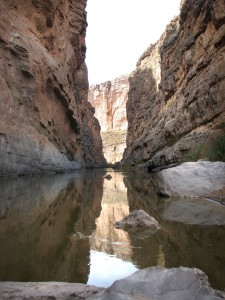Big Bend National Park Bans Drones
From Marfa Public Radio:
Big Bend National Park has placed an “interim” ban on unmanned aircraft on any lands or waters within the park’s boundaries, as part of a nationwide directive from the National Park Service (NPS.)
The ordinance went into effect August 20th – it specifically prohibits the “launching, landing or operation” of unmanned aircraft in the park, and also anywhere on stretches of the Rio Grande Wild and Scenic River, which is also managed by NPS.
A press release from the park says there have been rising concerns among national park visitors across the country about “noise and nuisance” from drones, and that the aircraft have in some cases disrupted wildlife behaviors.
Allen Etheridge, Chief Ranger at Big Bend National Park, says those concerns haven’t yet been an issue in the Big Bend, but he has heard about specific threats posed to wildlife and visitor experiences from other national parks.
“Some visitors had brought quad copters to Yellowstone National Park, and they had crashed them – not on purposefully of course – into the hot springs,” he says.
There have been other reports of visitors to Zion National Park in Utah disrupting Bighorn Sheep populations while trying to take aerial pictures.
Still, Etheridge says the ban only applies to lands managed by NPS, not airspace over the park, which is managed by the FAA. That means drones that don’t launch from or land on park lands aren’t subject to the new rule.
“It does not prohibit visitors from launching or using unmanned aircraft from outside the park boundary,” Etheridge says, “so that does give them the ability to make some flights over park lands.”
Etheridge adds that drone operations conducted by U.S. Customs and Border Protection/the Border Patrol won’t be affected by the new rule.
“Unmanned aircraft are a new park use and affect park resources, staff, and visitors in ways that the National Park Service has yet to identify and analyze,” Thursday’s press release states.
“It is National Park Service policy to not allow a new park use until a determination has been made that it will not result in unacceptable impacts on park resources and values and staff and visitor safety.”
The ban is set to remain in place “until further notice,” and includes model airplanes, “quad copters,” drones and other unmanned aircraft used commercially or recreationally.
Etheridge says there’s no set timetable for how long the ban will last, but park officials on the local and national level will be studying the issue in the coming months, and possibly looking at instances where drones would help more than hurt.
Search and rescue missions, GIS mapping, scientific research and fighting wildfires are among the potentially beneficial uses for drones in the park, Etheridge says.
“Once we get our head around that, we hope that we’re going to be able to put the unmanned aircraft to use for some positive uses here in Big Bend.”
As part of the nationwide ban, individual park superintendents can still request a special-use permit through the national NPS office.
